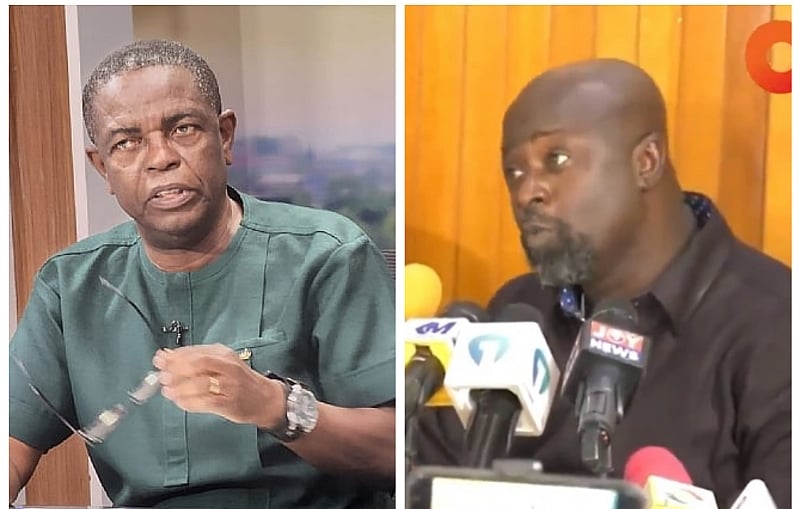Kwesi Pratt Jnr., a prominent Ghanaian journalist, has vehemently criticized the recent pronouncements of Kumasi’s newly appointed Mayor, Richard Ofori Agyemang Boadi, labeling them as unconstitutional, deeply troubling, and a blatant display of lawlessness. Pratt’s condemnation stems from the Mayor’s two-week ultimatum issued to street traders in Kumasi’s central business district, demanding they vacate the pavements or face forceful removal. The Mayor’s aggressive stance, which he termed a “democratic military style,” and his expressed disregard for due process have drawn sharp rebukes from Pratt and raised serious concerns about his suitability for public office. Pratt’s astonishment extends beyond the Mayor’s actions themselves to encompass the process that led to his appointment, questioning how such an individual could be entrusted with the leadership of a major city like Kumasi.
At the heart of the controversy lies the Mayor’s ultimatum and his proposed methods for enforcing it. His declaration to forcibly remove traders who fail to comply within the two-week timeframe has been interpreted as a disregard for legal procedures and the rights of the traders. The Mayor’s characterization of his approach as a “democratic military style” further fuels concerns about his understanding of governance and the rule of law. This phrase, juxtaposing democracy with military action, suggests a potential for authoritarianism and raises questions about his commitment to democratic principles. His open disdain for involving the police, accusing them of ineffectiveness and claiming that arrested traders quickly return to the streets, exacerbates anxieties about his respect for law enforcement and established legal processes.
Pratt’s outrage centers on the Mayor’s apparent disregard for constitutional principles and due process. The ultimatum, coupled with the threatened use of force, raises serious questions about the Mayor’s commitment to the rule of law. The arbitrary nature of the deadline and the absence of any clear legal framework for the proposed evictions raise the specter of potential human rights violations. Pratt argues that such actions are unacceptable in a democratic society and highlight a dangerous disregard for the rights of citizens. He emphasizes the need for adherence to legal procedures and due process, stressing that any actions taken by public officials must be within the bounds of the law.
The Mayor’s justification for his approach, citing the inefficiency of police involvement and the alleged swift return of traders to the streets, fails to persuade Pratt. He argues that these assertions do not justify circumventing established legal procedures or resorting to forceful evictions. Instead, Pratt contends, they point to a deeper systemic issue that requires addressing through appropriate channels, rather than through arbitrary and potentially unlawful actions. He emphasizes the importance of engaging with the police and other relevant stakeholders to find sustainable solutions to the issue of street trading, rather than resorting to heavy-handed tactics.
Pratt’s critique extends beyond the Mayor’s individual actions to question the process that led to his appointment. He expresses profound shock that someone with such a demonstrable disregard for the rule of law could be placed in a position of such significant authority. This raises broader questions about the vetting process for public officials and the criteria used for appointments. Pratt argues that the appointment of someone with such tendencies raises serious concerns about the judgment of the appointing authority and the potential consequences for governance. He calls for greater scrutiny of appointments to ensure that individuals entrusted with public office possess the necessary qualities and commitment to uphold the constitution and the rule of law.
Pratt concludes his condemnation with a strong call for accountability. He states that if the Mayor remains in office following these pronouncements, it would be a “huge statement” about the appointing authority. This statement, he suggests, would reflect poorly not only on the Mayor but also on those who chose to keep him in his position. He implies that retaining the Mayor in office would signal tacit approval of his actions and a disregard for the principles of constitutionalism and the rule of law. Pratt’s vehement criticism reflects a deep concern for the state of governance in Ghana and the importance of upholding democratic principles and respecting the rights of all citizens.














